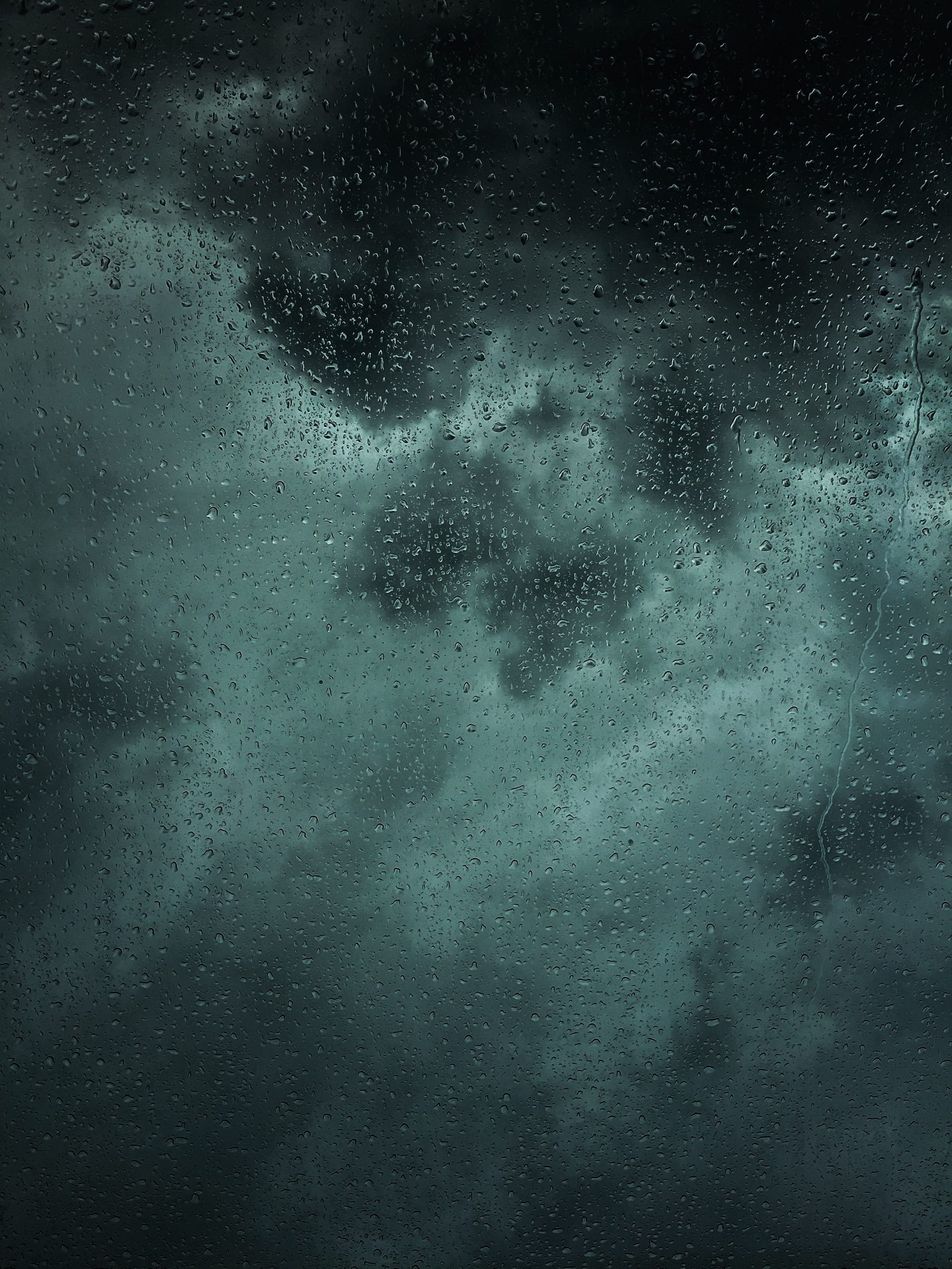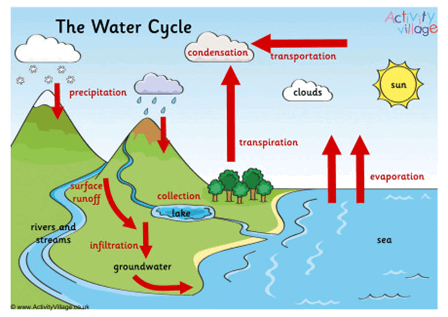The Water Cycle

By Philippa Sinclair
Feeling under the weather?
Look outside. Is it raining? Sunny? Overcast with clouds? In the United Kingdom sometimes it feels like it never stops raining!
We think about weather every day when we decide what activities to do, when we get dressed or decide to wear a coat out or not. But when did you last think about where different types of weather come from?
Let’s think about rain. Rain is part of a really interesting water cycle. The water cycle is a continuous process that moves water between the surface of the Earth and the atmosphere.
In the cycle, heat from the sun causes water to evaporate from the surface of the Earth as water vapour. Look at the diagram below and find all the sources of water that can evaporate into the atmosphere (hint: look for the lakes, rivers, seas, and for the plants).
The water vapour in the atmosphere cools and condenses into water droplets that form clouds. These clouds can move across the sky in the wind. Clouds can look quite different but are all made of droplets of water.
Can you think of some interesting cloud formations that you have seen?

Water cycle image from https://www.activityvillage.co.uk/the-water-cycle
The Met office has a good video on the water cycle here: https://www.metoffice.gov.uk/weather/learn-about/weather/how-weather-works/water-cycle
Activity: Make Your Own Cloud!
By Alexandra
You will need:
- A jar with a lid,
- Hair spray,
- Water (that you will need to boil),
- Ice cubes
How to make clouds:
- Making sure you are supervised by an adult, first boil some water and pour some hot water in the jar (fill about the half of it), carefully!
- Place the lid on top upside down and place some ice cubes on the lid then wait for a minute.
- After a minute, quickly take off the lid and spray some hair spray in the jar, then replace the lid with the ice on top.
Q. What do you see? What do you think is happening? Have you ever gazed up clouds? Have you seen any shapes? If yes, what kind of shapes? How do they flow?
Learning outcomes:
This experiment gives a visual picture of how a cloud is being made.
A nice video showing this experiment and explaining how a cloud forms is here:
Videos telling you more about clouds are available here: